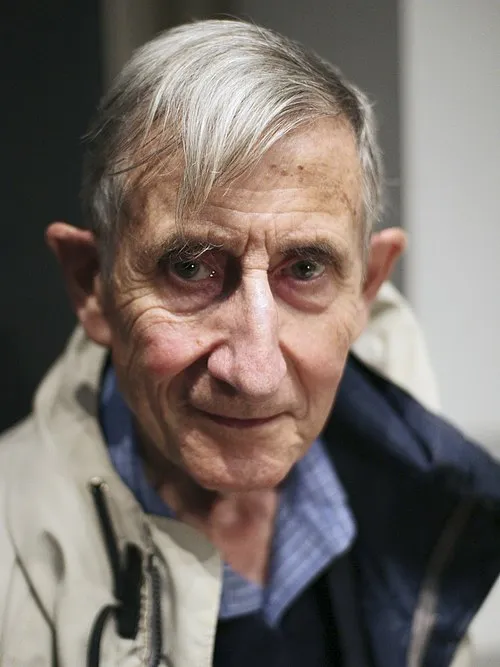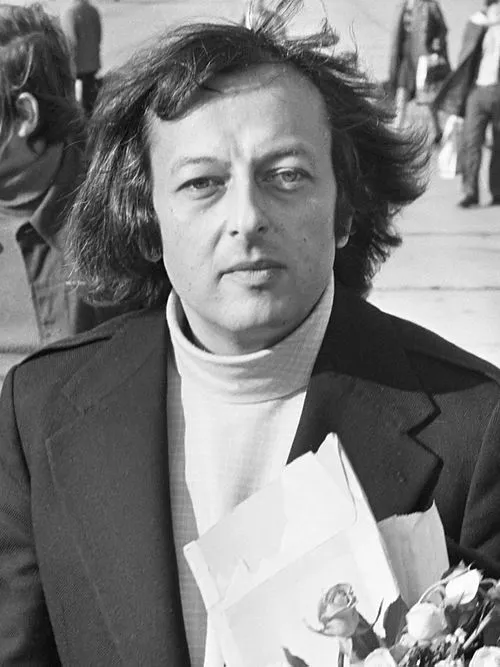In 2024, Prime Minister Modi inaugurated India's second spaceport, the Kulasekarapattinam Spaceport, enhancing the country's position in the global space industry. Discover the significance of this landmark event in India's space exploration journey.
On February 28
4
Important Days
27
Important Events
191
Births and Deaths
recorded.
Holidays and Occasions
Events
Births and Deaths

Kalevala Day: A Celebration of Finnish Culture and Heritage
Kalevala Day, also known as Finnish Culture Day, is observed annually on February 28th. This day commemorates the publication of the Kalevala, Finland's national epic, compiled by Elias Lönnrot...

National Science Day in India: Celebrating Scientific Excellence
Every year, India celebrates National Science Day on February 28th to commemorate the discovery of the Raman Effect by the renowned physicist Sir C.V...

Peace Memorial Day in Taiwan: A Day of Reflection and Remembrance
Peace Memorial Day, known in Taiwan as 和平紀念日 (Hépíng Jìniàn Rì), is a public holiday observed on March 10 each year. This day serves as a poignant reminder of the events surrounding the 228 Incident of 1947, a tragic period in Taiwanese history marked by state violence and the struggle for democratic principles...

Discover Andalusia Day: Culture and Celebrations in Spain
Andalusia Day, or Día de Andalucía, is a significant annual celebration in Spain, taking place on February 28th. This day commemorates the 1980 referendum that led to the establishment of the Andalusian Autonomous Community, marking a pivotal moment in the region's history...
In 2023, a tragic train collision occurred south of the Vale of Tempe in Greece, resulting in the deaths of at least 57 individuals. The disaster also left 58 people unaccounted for and 85 others injured, highlighting the ongoing concerns regarding rail safety in the region.
In 2013, Pope Benedict XVI made history by resigning as the leader of the Catholic Church, marking the first papal resignation since Pope Gregory XII in 1415. This unprecedented decision reshaped the future of the papacy and highlighted significant changes within the Vatican.
In 2002, Gujarat witnessed horrific religious violence leading to the tragic Naroda Patiya massacre, where 97 lives were lost, and the Gulbarg Society massacre, resulting in 69 deaths. These incidents marked a dark chapter in India's history of communal conflict.
The 2001 Nisqually earthquake, registering a moment magnitude of 6.8, struck the southern Puget Sound region, causing significant damage to the Seattle metropolitan area. This powerful seismic event serves as a critical reminder of earthquake preparedness in the Pacific Northwest.
In 1997, a significant Turkish military memorandum led to the dissolution of the coalition government in Turkey, marking a pivotal moment in the country's political landscape. Discover the implications of this event and its impact on Turkey’s governance.
In 1997, a devastating earthquake struck northern Iran, leading to approximately 1,100 fatalities. This tragic event highlights the region's vulnerability to seismic activity.
In 1993, a significant event unfolded when Bureau of Alcohol, Tobacco, Firearms and Explosives (ATF) agents conducted a raid on the Branch Davidian compound in Waco, Texas. Armed with a warrant for the arrest of leader David Koresh, this operation initiated a tense 51-day standoff that captured national attention. Discover the details of this pivotal moment in American history that showcased the complexities of law enforcement and religious groups.
Launch of Space Shuttle Atlantis on STS-36 in 1990 marks a significant milestone in space exploration history. Discover the mission's impact and advancements in aerospace technology.
In 1986, Olof Palme, the 26th Prime Minister of Sweden, was tragically assassinated in Stockholm, marking a pivotal moment in Swedish history.
In 1985, the Provisional Irish Republican Army executed a significant mortar attack on the Royal Ulster Constabulary police station in Newry, resulting in the tragic loss of nine officers. This pivotal event highlights the intense conflict and violence during this period in Northern Ireland's history.
In 1983, the final episode of the iconic series M*A*S*H aired, captivating nearly 110 million viewers and marking a significant moment in television history.
In 1975, a tragic incident occurred in London when an underground train failed to stop at the Moorgate terminus station, crashing into the end of the tunnel and resulting in the deaths of 43 individuals. This catastrophic event remains one of the deadliest in London’s transport history.
In 1974, the British election resulted in a hung parliament, marking a significant moment in political history. The Liberal Party, led by Jeremy Thorpe, secured their highest vote share since 1929, reshaping the electoral landscape.
In 1969, a powerful earthquake struck Portugal, impacting regions of Spain and Morocco. Discover the historical significance and effects of the 1969 Portugal earthquake on neighboring countries.
In 1966, a tragic crash involving a NASA T-38 Talon occurred at the McDonnell Aircraft factory during a landing attempt in poor visibility conditions at Lambert Field, St. Louis. The incident resulted in the loss of two astronauts, Elliot See and Charles Bassett.
In 1959, Discoverer 1, the pioneering American spy satellite designed for polar orbit, was launched but ultimately did not reach orbit. This historic attempt marked a significant milestone in satellite technology and space exploration.
In 1958, a tragic school bus accident in Floyd County, Kentucky, claimed the lives of 27 individuals, including the driver and 26 children. The bus collided with a wrecker truck and careened down an embankment into the flooded Levisa Fork River, marking it as one of the deadliest school bus disasters in U.S. history. This heartbreaking event serves as a stark reminder of the importance of safety in school transportation.
The 1947 February 28 Incident in Taiwan marked a tragic episode of civil unrest, resulting in the deaths of approximately 28,000 civilians. This historical event highlights the significant social and political tensions in post-war Taiwan, shaping the island's future and its relations with mainland China.
In 1925, the Charlevoix-Kamouraska earthquake struck northeastern North America, leaving a significant impact on the region’s geological history. This powerful seismic event serves as a pivotal moment in earthquake research and the understanding of tectonic activities in North America.
In 1922, the United Kingdom officially terminated its protectorate over Egypt with a Unilateral Declaration of Independence, marking a significant milestone in Egypt's history. This pivotal moment laid the foundation for Egypt's sovereign status and transformation into an independent nation.
In 1844, a tragic incident occurred aboard the USS Princeton, a steam warship, as it embarked on a pleasure cruise along the Potomac River. A cannon explosion killed six individuals, including Secretary of State Abel Upshur, while President John Tyler, who was also present, survived the blast unharmed. This event remains a significant moment in maritime history.
In 1835, Elias Lönnrot signed and dated the inaugural version of the Kalevala, known as the preface to the Old Kalevala. This significant literary milestone marked the beginning of Finland's national epic, highlighting Lönnrot's pivotal role in preserving and promoting Finnish folklore and culture.
In 1638, the Scottish National Covenant was officially signed in Edinburgh, marking a significant historical event in Scotland's struggle for religious and political autonomy. This pivotal moment laid the groundwork for future social and political movements within the country. Discover the impact of the National Covenant on Scotland's history today!
In 1525, the Aztec king Cuauhtémoc was executed under the orders of conquistador Hernán Cortés, marking a significant moment in the Spanish conquest of Mexico. Explore the historical impact of this event on Aztec civilization and its aftermath.
870 – The Fourth Council of Constantinople concludes, marking a significant event in church history and the development of Christian doctrine.
In 202 BC, Liu Bang ascended to the throne as the Emperor of China, marking the start of four centuries of the illustrious Han dynasty's reign. Discover how this pivotal event shaped Chinese history and culture for generations.
Births

2005 – Vitor Roque, Brazilian footballer

2000 – Josip Šutalo, Croatian footballer

2000 – Moise Kean, Italian footballer

1999 – Luka Dončić, Slovenian basketball player

1998 – Teun Koopmeiners, Dutch footballer

1997 – Chris Lindstrom, American football player

1996 – Axel Werner, Argentinian footballer

1996 – Lucas Boyé, Argentinian footballer

1996 – Jakub Vrána, Czech ice hockey player

1996 – Bobb'e J. Thompson, American actor

1995 – Quinn Shephard, American actress

1995 – Madisen Beaty, American actress

1995 – Randy Arozarena, Cuban-Mexican baseball player

1994 – Arkadiusz Milik, Polish footballer

1994 – Alex Caruso, American basketball player

1993 – Éder Álvarez Balanta, Colombian footballer

1993 – Marquis Teague, American basketball player

1991 – Ronalds Ķēniņš, Latvian ice hockey player

1991 – Sarah Bolger, Irish actress

1990 – Sebastian Rudy, German footballer
Deaths

2024 – Ahmed Salim, Bangladeshi convicted murderer (b. 1989)

2020 – Sir Lenox Hewitt, Australian public servant (b. 1917)

2020 – Freeman Dyson, British-born American physicist and mathematician (b. 1923)

2020 – Joe Coulombe, founder of Trader Joe's (b. 1930)

2019 – André Previn, German-American pianist, conductor, and composer. (b. 1929)

2016 – George Kennedy, American actor (b. 1925)

2015 – Yaşar Kemal, Turkish journalist and author (b. 1923)

2014 – Hugo Brandt Corstius, Dutch linguist and author (b. 1935)

2013 – Donald A. Glaser, American physicist and biologist, Nobel Prize laureate (b. 1926)

2011 – Annie Girardot, French actress (b. 1931)

2009 – Paul Harvey, American radio host (b. 1918)

2007 – Arthur M. Schlesinger, Jr. American historian and critic (b. 1917)

2006 – Owen Chamberlain, American physicist and academic, Nobel Prize laureate (b. 1920)

2005 – Chris Curtis, English singer and drummer (b. 1941)

2004 – Daniel J. Boorstin, American historian and librarian (b. 1914)

2003 – Chris Brasher, Guyanese-English runner and journalist, co-founded the London Marathon (b. 1928)

2002 – Helmut Zacharias, German violinist and composer (b. 1920)

2002 – Mary Stuart, American actress and singer (b. 1926)

1998 – Arkady Shevchenko, Ukrainian diplomat (b. 1930)

1993 – Ruby Keeler, Canadian-American actress and dancer (b. 1909)
